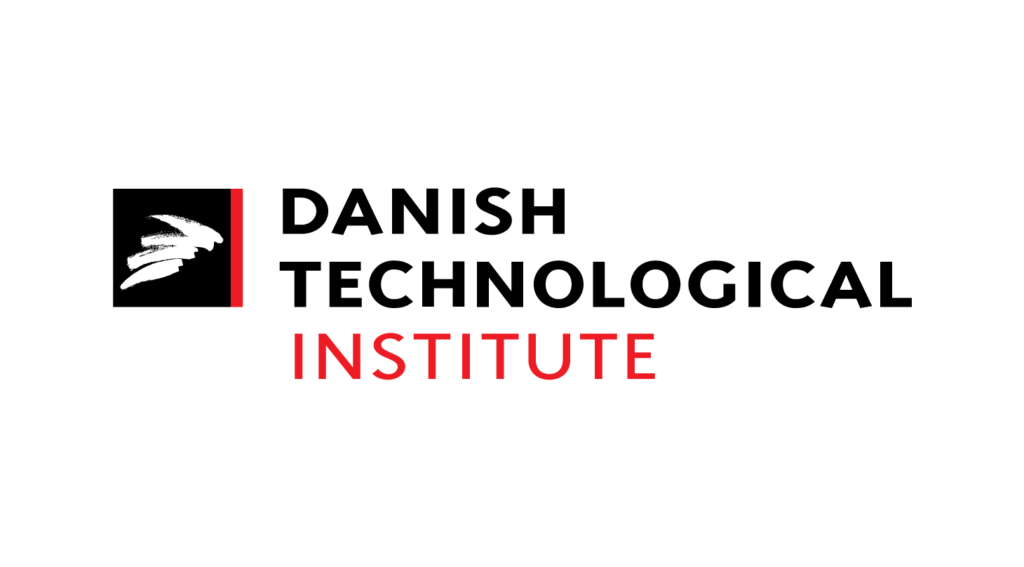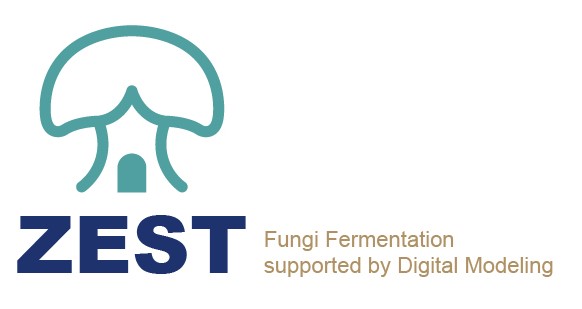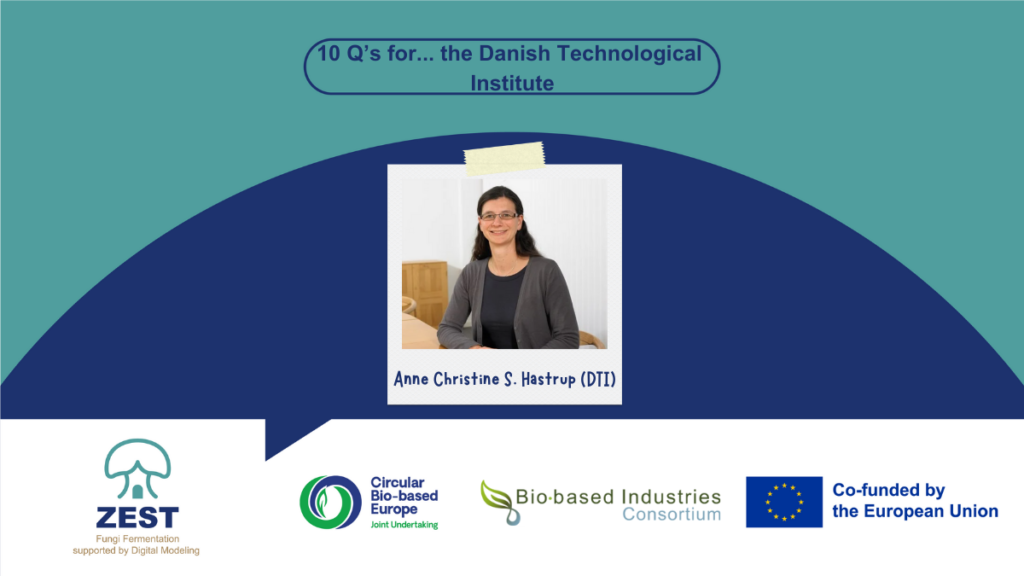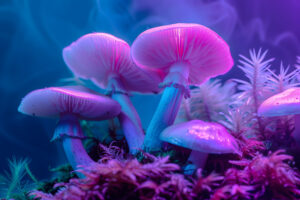This section seeks to introduce each beneficiary, explain their sector, and describe their work in the project. Today it is the turn of Anne Christine Steenkjaer Hastrup, from the Danish Technological Institute (DTI).
What’s the Danish Technological Institute (DTI)?
The Danish Technological Institute (DTI) is a leading not-for-profit research and development organization in Denmark, established in 1906. It bridges the gap between research and industry by supporting innovation, offering testing and certification, and providing consultancy and training services. DTI focuses on areas such as sustainability, energy, food, biotechnology, robotics, advanced materials, and digitalization. It collaborates with businesses, universities, and international partners to drive technological advancements and strengthen Denmark’s global competitiveness, particularly in green technologies and digital transformation.
The Center for Bioresources at the Danish Technological Institute specializes in utilizing biological resources, such as microalgae, seaweed, crop residues and other biomass, for sustainable applications. Within this, the Biosolutions Centre focuses specifically on developing innovative bio-based solutions for industries, including biorefining, bioactive ingredients, and sustainable novel food, supporting the transition toward a circular and green economy.

How long have you been working at the DTI and what’s your background and role in the company?
I have been employed at DTI for 11 years. I have a background in MSc in Microbiology from the University of Copenhagen (UCPH), og a PhD in Mycology also from UCPH. My postdoc is in Biotechnology from University of Aalborg, Denmark and Washington State University, USA. I’m the director of Center for Bioresources and heading the Biosolutions Technology Center. I’m the coordinator of the ZEST project.
What do you like about your job?
I like my job because I on a daily basis have the possibility of interacting with companies, researchers and other actors within the Biosolutions ecosystem all working toward a greener and more sustainable future. I like the versatility of tasks and networking, the possibility of being in the forefront of applied research and the ability to advance and validate new processes and new products. Finally, I really enjoyed being able to influence the stakeholders within the green transition and help advance the biosolutions sector.
Do you enjoy working on a transnational collaborative project?
Being in a transnational collaborative project is super meaningful to me and something I constantly pursue in my job. Transforming the processing and production industry together with the consumers requires collaboration across borders. The agenda requires that we come together, exchanges ideas, learn from each other, and co-create. The obstacles and challenges require that we collaborate, and the solutions are plentiful and complex.
Why did the DTI join ZEST? What does make ZEST special and intriguing for the DTI?
The DTI joined ZEST to leverage its expertise in fermentation, downstream processing, and sustainability while contributing to a circular bioeconomy. ZEST aligns with DTI’s mission to drive sustainable innovation by upcycling agricultural side streams into high-value products such as mycoproteins. The project’s integration of AI-driven process control, digital modeling, and a Safe-and-Sustainable-by-Design framework offers a unique opportunity to work on leading-edge and scalable technologies with significant market and environmental impact.

What is the mission of the DTI in the ZEST project?
The DTI serves as the Project Coordinator, ensuring efficient project management, communication, and compliance with ethics and data management. DTI leads WP4 (Downstream Processes), focusing on designing cost-effective downstream processes for fungal biomass and mycoproteins, and demonstrating them in its food-grade pilot plant.
It also plays a key role in validating fermentation processes (WP1), supporting the development of bioreactors (WP2), developing and implementing digital models and AI-based processes for fermentation and bioreactor control (WP3), and contributing to safety and sustainability assessments (WP6). DTI also aids in dissemination, exploitation, and business modeling to ensure market uptake and scalability of ZEST’s innovations.
What are you working on at this stage?
- Validating and developing upscalable protocols for fermentation (WP1-WP2).
- Assisting in designing the ZEST data management platform, ensuring data collection, integration, and analysis from fermentation experiments (WP3).
- Developing feasible downstream process for recovering and valorizing produced fungi biomass (WP4).
What are the main challenges you are facing currently?
- Fungal growth is slow, and biomass yield is limited by unsuitable reactors, leading to poor oxygen transfer and fungal aggregation.
- Efficient large-scale biomass collection is challenging, as centrifugation is ineffective; current methods like filtration and manual pressing are slow and need improvement.
- Developing accurate and robust digital models for fungal growth is challenging due to the filamentous nature of the fungi, which adhere to surfaces and vary across volumes. Defining a comprehensive yet efficient experimental plan for data collection is difficult, as experiments are time-consuming and costly, requiring careful selection of parameters to capture key dependencies for algorithm training.
What are the key findings so far?
The factors that affect reproducibility of fungal growth of the selected fungi biomass.
What do you think the contribution of ZEST will be once the project is completed in scientific, social and economic terms?
Scientific
- Advancing fungal fermentation technologies, including optimized bioreactor design, digital modeling, and downstream processes.
- Developing eco-friendly scalable methods for protein and by-product extraction, contributing to circular bioeconomy research.
Social
- Promoting sustainable and ethical protein alternatives to meet global food demands.
- Enhancing consumer acceptance of mycoproteins and raising awareness of environmental and health benefits.
- Creating jobs in sustainable food production and biotechnology industries.
Economic
- Reducing production costs of fungal proteins and enabling market uptake of economically viable bio-based products.
- Supporting European biorefineries and boosting competitiveness in the alternative protein market.
- Opening new markets for food, pet food, and cosmetics industries through innovative products and processes.
Where to find us
👉🏽 X: Follow for real-time project updates, news, and live event highlights.
👉🏽LinkedIn: Engage with in-depth content, professional insights, and project discussions.
👉🏽 YouTube: Watch inspiring videos and interviews featuring project partners, researchers, and key findings.


